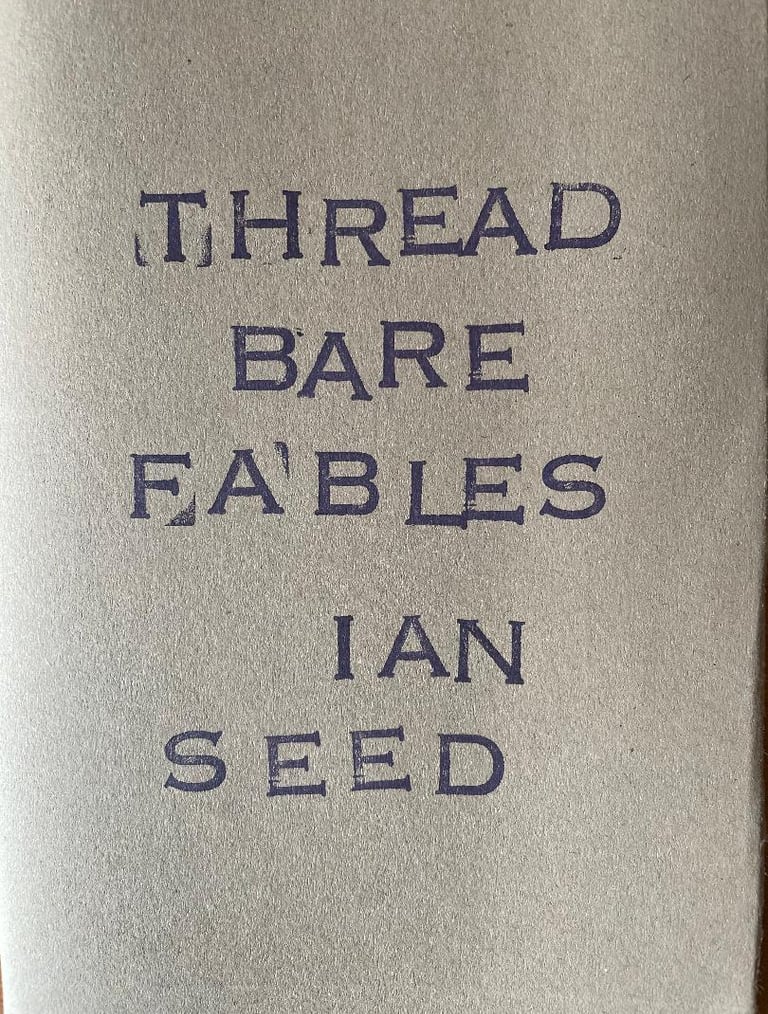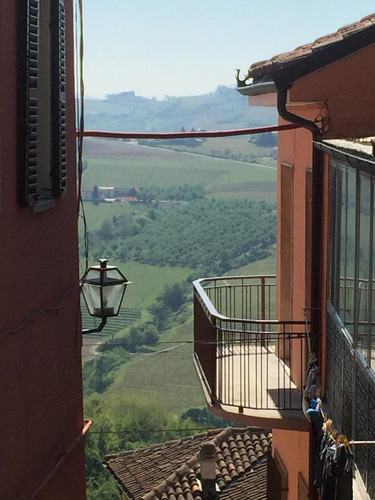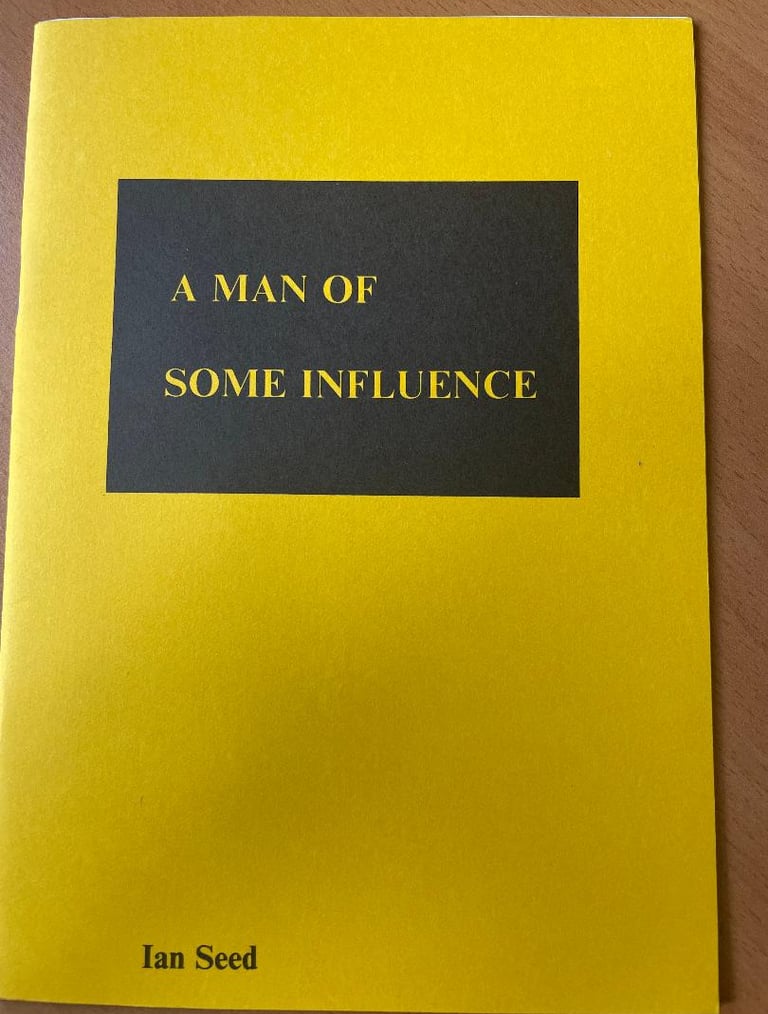Chapbooks include:
My Outsize Hank Williams Cowboy Hat (Sacred Parasite, 2025)
Twenty five small prose pieces combined with artwork by Lupo Sol.
'Much enjoyed this small but perfectly conceived object of art. Ian’s poems - sometimes humorous, sometimes surreal but always surprising and masterful - work so well alongside the expressionist paintings. A feast for the eyes and the mind.' Tristan Moss, Blue Sky Social.
'Ian's writing is self-depreciating, witty, disarming and always warmly surprising. There is nothing cynical, critical or didactic. It is lived, or imagined experience wryly described. As for the drawings of Lupo Sol it's as if the two had been waiting for each other so as to create a multi-faceted whole. A truly beautiful production and I cannot recommend it highly enough.' Colin R., publisher website review.
Published in a limited edition.
See https://www.sacredparasite.com/product/my-outsize-hank-williams-cowboy-hat
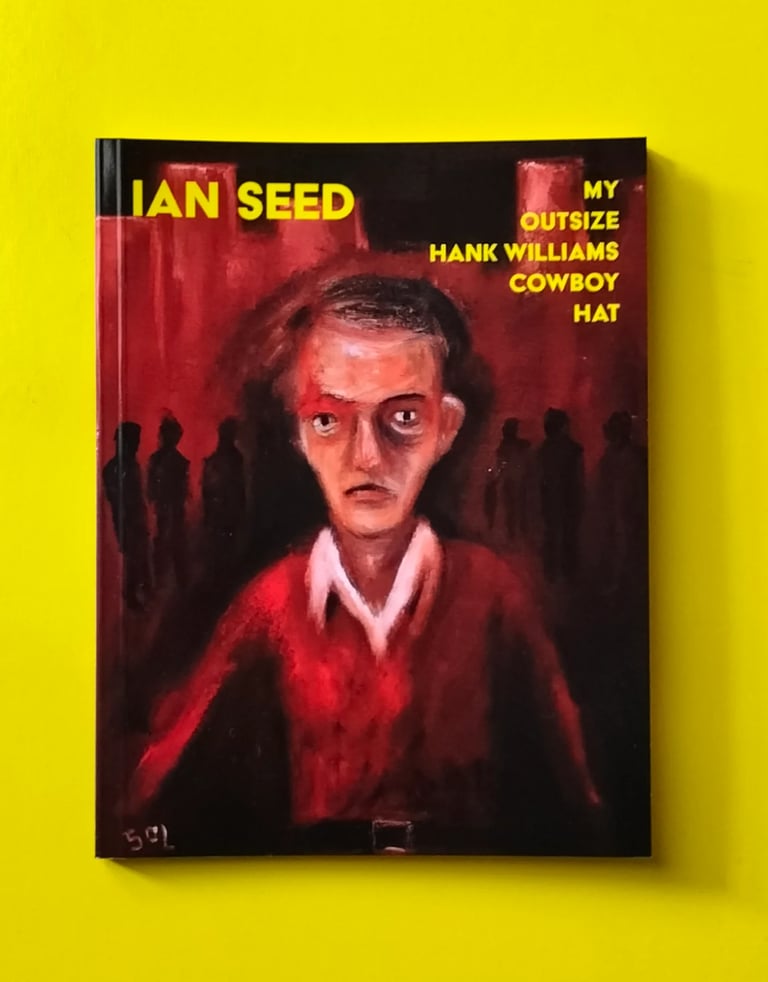

Scattering My Mother's Ashes (Red Ceilings, Press 2024)
In Scattering My Mother’s Ashes, I am attempting to navigate the mixed and complicated emotions of bereavement. I have only partially succeeded, but I think of the poems here as perhaps a beginning of some kind. The first sequence, ‘My Mother’, is a litany after the manner of Eduardo Moga’s Mi padre. It brings together a series of splintered memories in the hope of creating an unsettling, bittersweet elegy. In the second sequence, grief takes the shape of a series of tiny fictions, in which loss and sadness become indistinguishable from the comic and absurd. I am hoping these poem-stories will take readers into a world in which they won’t know if they want to laugh or cry, or both at the same time.
'At the end of the poem, we see what Seed has done. He’s given us a picture of who his mother was. It’s a picture by a son, who describes the outward and obvious as a way of getting at the inward and invisible.' Stephen Pollock, TweetSpeakPoetry.
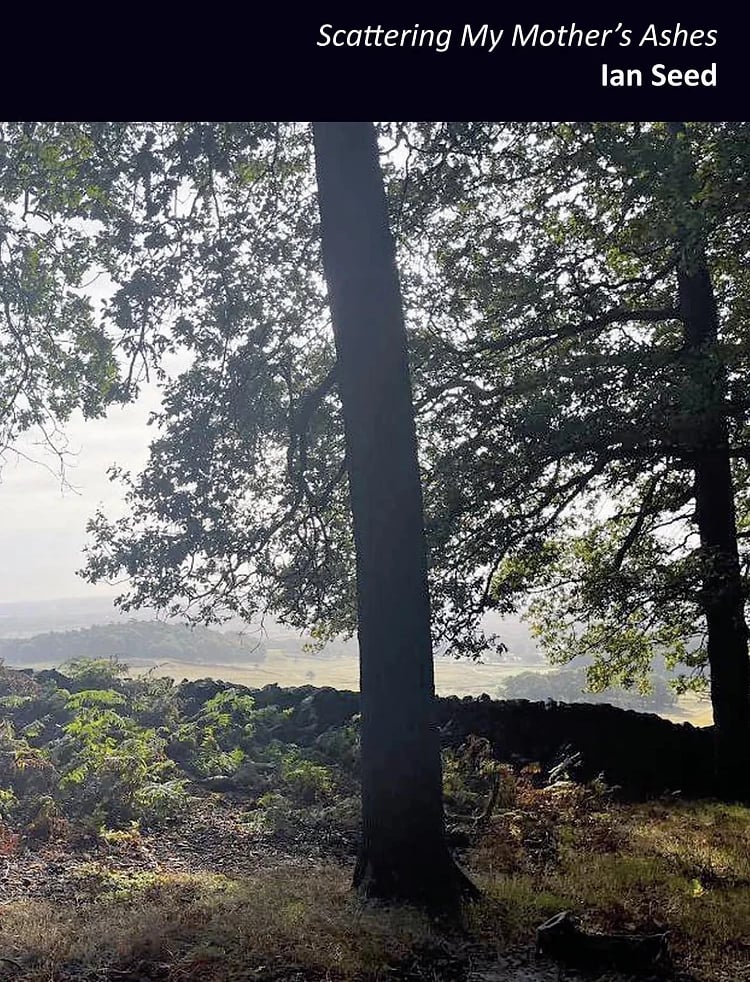

Fidelities (LikeThisPress 2015)
'I love Ian Seed's poetry. His strange dreamy narratives which are also non-narrative have a vague yet crystal hard precision which is not easy to encapsulate or describe... This is clever writing, playful and ever open to possibility but it's also the genuine article.' Steve Spence, Stride.
'This collection enacts an excursive articulation of the world and language, the shifts and creative repetitions found in both, between words and inside words, between moments and within moments: each poem finding its distinct poetic imperative to reveal these moves in the landscape in complex and subtle ways.' Patricia Farrell.


Threadbare Fables (LikeThisPress 2012)
'First things first—don’t waste time trying to decide whether Ian Seed’s mysterious, pared-down narratives are prose poems or flash fiction or some other form you’ve not heard of yet. For that matter, don’t worry about whether or not they’re strictly fables, either. There are no neat moral lessons to be learned. They are fabulous, though, in every sense of the word.' Matt Merritt, Sphinx.
'Not exactly funny, but I smiled when I read it, nevertheless.' Martin Stannard, Stride Magazine.
'They extend the force of Jacob's Le Cornet à dés beautifully into today's urban sphere.' John Ashbery, in email to author.
